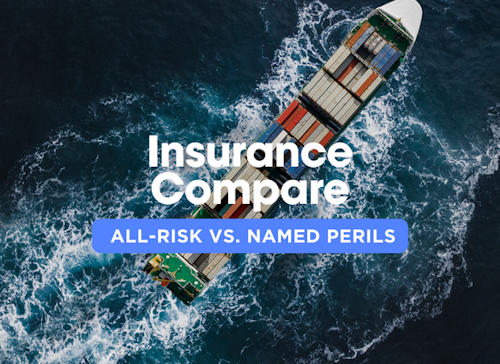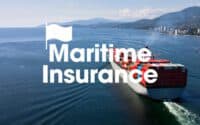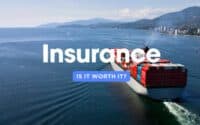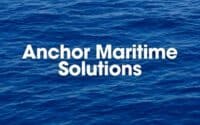The Benefits of All-Risk Cargo Insurance vs. Named Perils Coverage

In the world of maritime shipping, insurance is a crucial aspect that protects businesses from unforeseen losses. Among the various types of cargo insurance available, All-Risk Cargo Insurance and Named Perils Coverage are two prominent options. Understanding the benefits and differences between these two can help ship owners and shippers make informed decisions.
| Criteria | All-Risk Cargo Insurance | Named Perils Coverage |
|---|---|---|
| Definition | Covers all risks of loss or damage to cargo, except for those specifically excluded. | Covers only the risks that are explicitly listed in the policy. |
| Coverage Scope | Broad, covering all types of risks unless explicitly excluded. | Narrow, only covering specific risks mentioned in the policy. |
| Common Inclusions | Natural disasters, theft, handling damage, improper stowage, customs rejections, etc. | Fire, explosion, collision, overturning, natural disasters (if listed), etc. |
| Common Exclusions | War, strikes, inherent vice, delay, loss of market, wear and tear, etc. | All risks not listed, such as theft, improper handling, customs issues, etc. |
| Claims Process | Simpler, as it covers all losses not explicitly excluded; easier to prove. | More complex, as it requires proving that the damage was caused by a named peril. |
| Premium Cost | Generally higher due to the comprehensive coverage. | Generally lower due to the limited coverage. |
| Best For | High-value or sensitive cargo, goods in volatile regions, shippers seeking broad protection. | Standard goods with lower risk profiles, cost-sensitive shippers, well-defined risk environments. |
All-Risk Cargo Insurance: This type of insurance covers all risks of loss or damage to cargo, except for those specifically excluded in the policy. It provides the broadest coverage, ensuring maximum protection against a wide range of potential hazards.
Named Perils Coverage: In contrast, Named Perils Coverage only covers the risks that are explicitly listed in the policy. If a risk is not mentioned, it is not covered. This type of insurance offers more limited coverage but can be tailored to specific risks that a shipper might be concerned about.
Coverage Scope
All-Risk Cargo Insurance: The scope of All-Risk Cargo Insurance is broad, covering almost all types of risks unless they are explicitly excluded in the policy. This includes common risks such as natural disasters, theft, handling damage, improper stowage, and customs rejections.
Named Perils Coverage: The scope of Named Perils Coverage is narrow, only covering the specific risks mentioned in the policy. Typical inclusions are fire, explosion, collision, overturning, and certain natural disasters, if they are listed. Risks not listed, such as theft or improper handling, are not covered.
Common Inclusions
All-Risk Cargo Insurance:
- Natural disasters
- Theft
- Handling damage
- Improper stowage
- Customs rejections
Named Perils Coverage:
- Fire
- Explosion
- Collision
- Overturning
- Natural disasters (if listed)
Common Exclusions
All-Risk Cargo Insurance: While All-Risk policies are comprehensive, they do have exclusions such as:
- War
- Strikes
- Inherent vice (internal decay)
- Delay
- Loss of market
- Wear and tear
Named Perils Coverage: Exclusions in Named Perils Coverage include all risks not listed in the policy, such as:
- Theft
- Improper handling
- Customs issues
- War (unless listed)
- Strikes (unless listed)
Claims Process
All-Risk Cargo Insurance: The claims process under All-Risk Cargo Insurance is generally simpler because it covers all losses not explicitly excluded. This broad coverage makes it easier to prove a claim, as the policyholder only needs to show that a loss occurred.
Named Perils Coverage: The claims process for Named Perils Coverage can be more complex. The policyholder must prove that the damage or loss was caused by one of the specifically named perils in the policy. This can involve more documentation and evidence.
Premium Cost
All-Risk Cargo Insurance: The premium for All-Risk Cargo Insurance is generally higher due to its comprehensive coverage. The extensive protection it offers comes at a cost, reflecting the wide range of risks it insures against.
Named Perils Coverage: Premiums for Named Perils Coverage are typically lower because the coverage is limited to specific risks. This makes it a more cost-effective option for shippers who want to save on insurance costs and have lower-risk profiles.
Best For
All-Risk Cargo Insurance: This type of insurance is best suited for high-value or sensitive cargo, goods being shipped in volatile regions, and shippers seeking broad protection. It is ideal for those who want the peace of mind that comes with knowing their cargo is covered against almost all possible risks.
Named Perils Coverage: Named Perils Coverage is best for standard goods with lower risk profiles, cost-sensitive shippers, and shipments in well-defined risk environments. It is a suitable option for those who want to control insurance costs while still having coverage for specific, high-priority risks.
Choosing between All-Risk Cargo Insurance and Named Perils Coverage depends on several factors, including the nature of the cargo, the shipping route, and the shipper's risk tolerance. All-Risk Cargo Insurance offers broad protection and simplicity in claims, making it ideal for high-value and high-risk shipments. Named Perils Coverage, with its lower premiums and specific coverage, can be a cost-effective choice for standard, lower-risk shipments. By understanding these differences and benefits, shippers can make informed decisions that best protect their cargo and their business interests.

Do you have a Maritime Product or Service that may be of interest to Shipowners? Tell us about it here!
Do you have feedback or insights? Please reach out to editor @ shipuniverse.com



